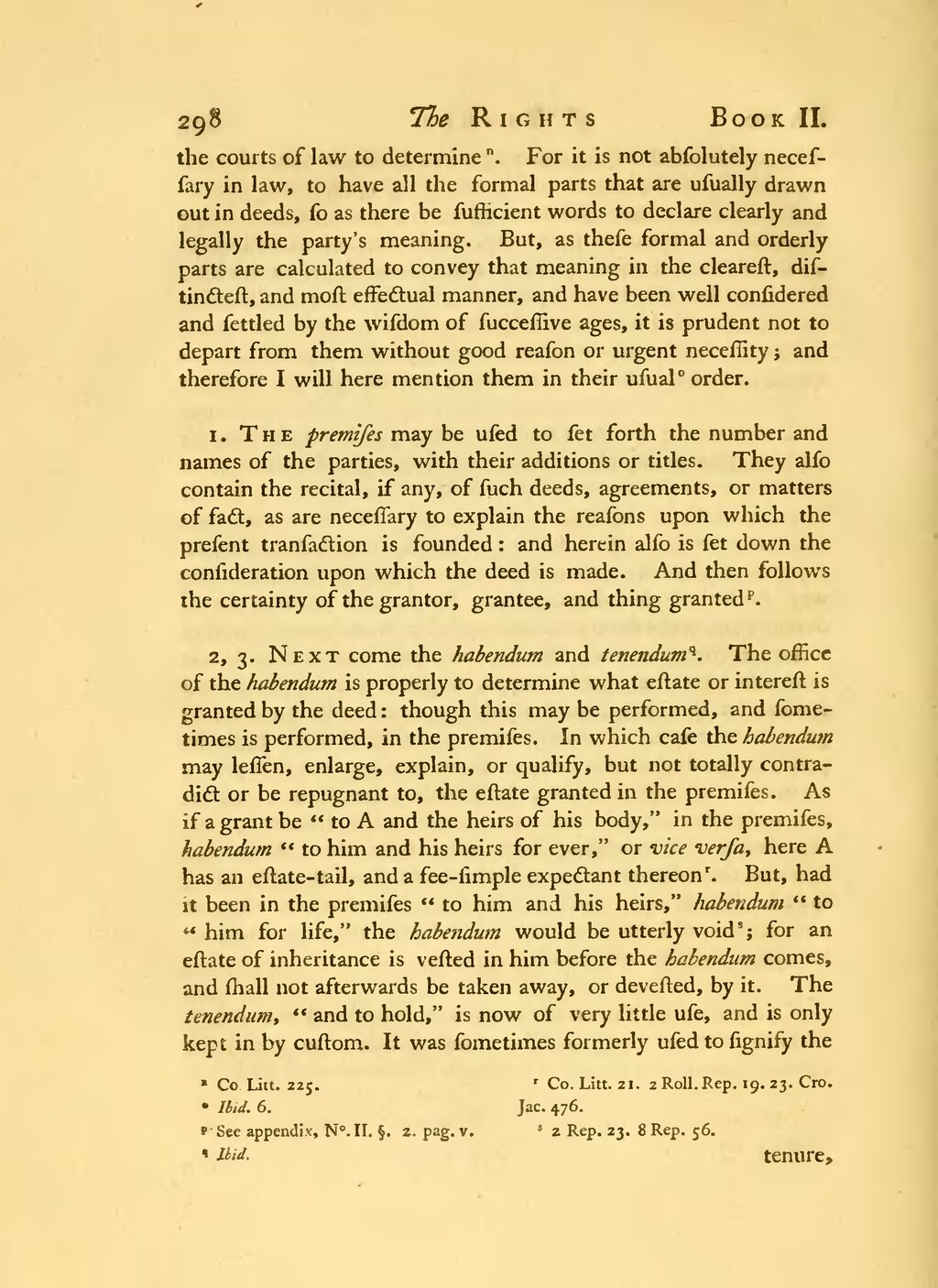the courts of law to determine[1]. For it is not abſolutely neceſſary in law, to have all the formal parts that are uſually drawn out in deeds, ſo as there be ſufficient words to declare clearly and legally the party's meaning. But, as theſe formal and orderly parts are calculated to convey that meaning in the cleareſt, diſtincteſt, and moſt effectual manner, and have been well conſidered and ſettled by the wiſdom of ſucceſſive ages, it is prudent not to depart from them without good reaſon or urgent neceſſity; and therefore I will here mention them in their uſual[2] order.
1. The premiſes may be uſed to ſet forth the number and names of the parties, with their additions or titles. They alſo contain the recital, if any, of ſuch deeds, agreements, or matters of fact, as are neceſſſary to explain the reaſons upon which the preſent tranſaction is founded: and herein alſo is ſet down the conſideration upon which the deed is made. And then follows the certainty of the grantor, grantee, and thing granted[3].
2, 3. Next come the habendum and tenendum[4]. The office of the habendum is properly to determine what eſtate or intereſt is granted by the deed: though this may be performed, and ſometimes is performed, in the premiſes. In which caſe the habendum may leſſen, enlarge, explain, or qualify, but not totally contradict or be repugnant to, the eſtate granted in the premiſes. As if a grant be "to A and the heirs of his body," in the premiſes, habendum "to him and his heirs for ever," or vice verſa, here A has an eſtate-tail, and a fee-ſimple expectant thereon[5]. But, had it been in the premiſes "to him and his heirs," habendum "to him for life," the habendum would be utterly void[6]; for an eſtate of inheritance is veſted in him before the habendum comes, and ſhall not afterwards be taken away, or deveſted, by it. The tenendum, "and to hold," is now of very little uſe, and is only kept in by cuſtom. It was ſometimes formerly uſed to ſignify the
